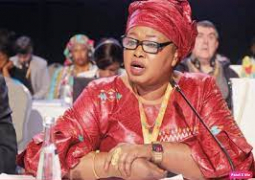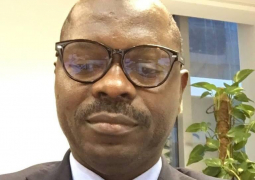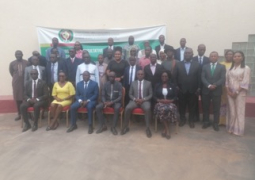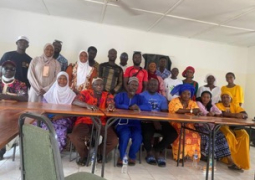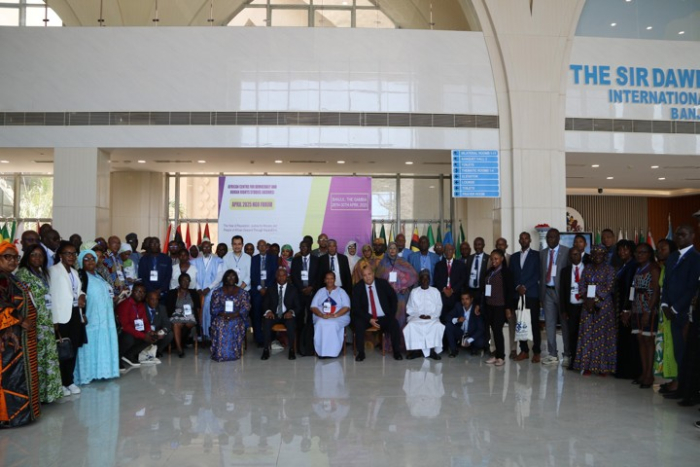
Spearheaded by the African Centre for Democracy and Human Rights Studies (ACDHRS), the Forum served as a vital platform for shared reflection, strategic collaboration, and solidarity among participants from across the continent and its diaspora. Key issues addressed included the legacies of colonialism and slavery, suppression of civil liberties, and the marginalization of vulnerable groups including migrants.
Mrs. Hannah Forster, Executive Director of ACDHRS and moderator of the opening ceremony, underscored the need for reparations to go beyond mere financial compensation. “Reparations must embody the restoration of dignity, justice, and truth,” she affirmed, welcoming dignitaries and reinforcing the forum’s role in driving impactful justice-oriented strategies across Africa.
Professor Mohamed Mabassa Fall, Vice Chairperson of the ACDHRS Governing Council, acknowledged The Gambia’s ongoing support and emphasised the importance of amplifying voices of survivors and frontline defenders. Speaking on behalf of Chairperson Justice Solome Bossa, he remarked: “The Forum is measured not by its size, but by the power and influence of its ideas.”
Participants expressed solidarity with groups like REDHAC, which continues to endure political suppression and financial constraints. Naji Moulay Lahsen of the NGO Forum Steering Committee raised alarm over increasing restrictions on civic space, particularly the abuse of anti-terrorism legislation to silence dissent. “The erosion of human rights across the continent is deeply concerning. We must act in unity to resist it,” he urged.
Joining virtually, Mr. Gilbert Sibi-Hugo, Executive Director of the Network of African National Human Rights Institutions, stressed that reparations are key to healing and structural transformation. “They are a necessary step toward reclaiming the dignity of African people,” he noted.
Mr. Jeggan Grey-Johnson of the Open Society Foundations contextualised the reparations dialogue within broader global dynamics, referencing rising right-wing extremism, conflicts in Africa, and global instability. He highlighted the African Union’s 2025 declaration as the Year of Justice for Africans and People of African Descent presents a crucial opportunity for a unified African stance on reparatory justice. He cited crises in Sudan, the DRC, and Mozambique as stark reminders of the need to uphold rule of law and protect vulnerable populations.
As the Forum concluded, participants compiled and submitted key recommendations to the 83rd Ordinary Session of the African Commission on Human and Peoples’ Rights. These proposals aim to steer African states, institutions, and partners toward a reparatory justice framework anchored in recognition, dignity, and systemic reform.


